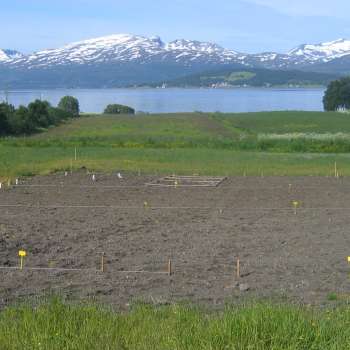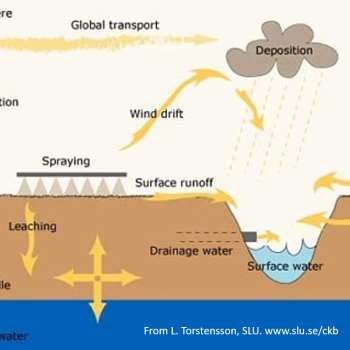
Pesticide Pollution
Pesticides are chemicals used to control weeds, plant pathogens and insect pests. Pesticides can also be a key source of environmental problems within an ecosystem.
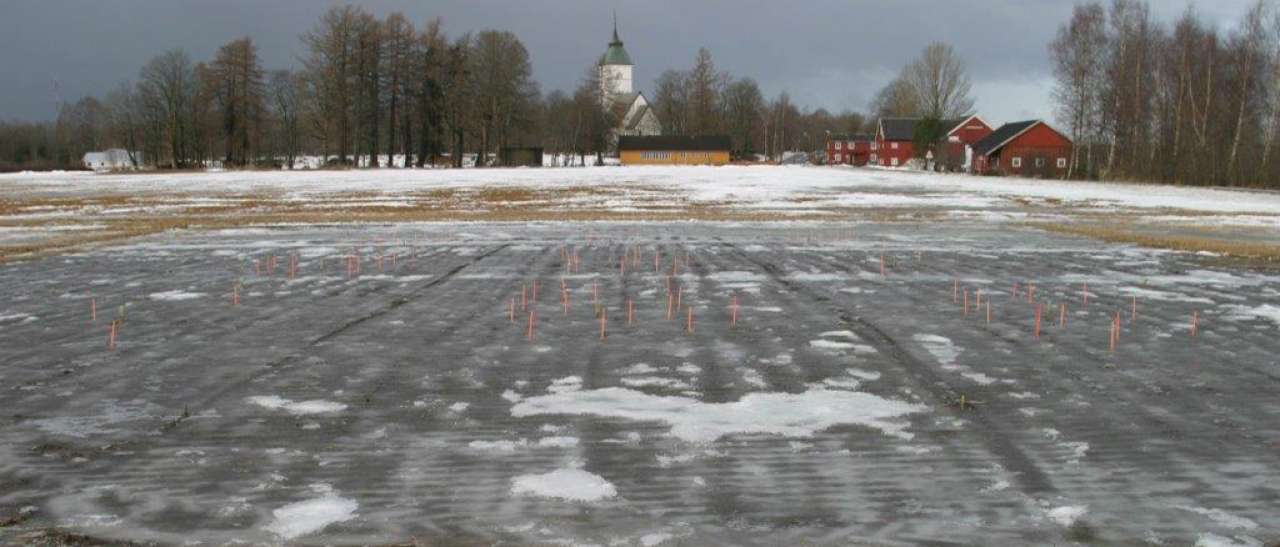
We study the future impact of pesticides using controlled laboratory and field trials, and we monitor environmental change through the Norwegian Agricultural Environmental Monitoring Program (JOVA). Our aim is to reduce pollution from point sources through development, optimization and promotion of specific measures like biofilters, and to use simulation models to develop risk assessment procedures and end-user tools for reducing diffuse pollution from pesticide spraying in different farming communities.
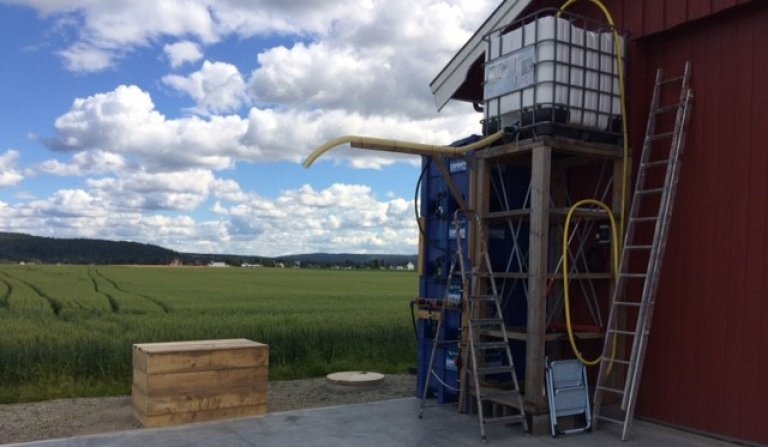
Goal
We primarily study the exposure to and the bioavailability of pesticides and degradation products in the environment. To progress our research, we continuously develop analytical methods for detecting new substances and in lower concentrations.
It is important that we publish the results of our research through channels and in formats that can be used by government agencies, advisory bodies, professional users and the public.
Our key aim is to increase the knowledge of pesticide transport, exposure, effects and risks in the environment under different climate and soil conditions, and develop recommendations for sustainable use of pesticides under Norwegian conditions. We initiate and participate in national and international research project to achieve this.
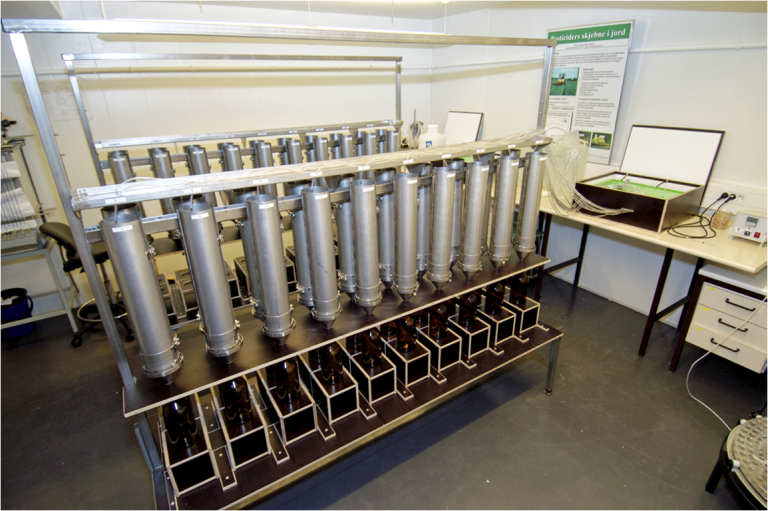
Activities
Our research activities focus on the degradation, sorption and transport of pesticides and their degradation products in the environment via laboratory and field trials. We also study industrial chemicals and bioactive natural substances.
Field trials that investigate pesticide fate in the environment and mitigation measures to reduce pesticide pollution form a key element of our activities. Field data is used to validate models and simulate the potential exposure concentrations of these substances and the resulting risks to health and the environment, based on site-specific information such as cultivation practices, climate, soil type and topography. Web-based end-user tools for pesticide risk assessment are developed to promote site specific assessment and enable the farmers in choosing pesticide strategies with the least environmental impact as part of their integrated pest management.
Research on the intersection between biotechnology and ecotoxicology is a focus area that is currently evolving.
Chemical analyzes are generally performed using modern instrumentation, and we continuously develop and optimize new and existing methods of analysis. Flexible accreditation and chemical analytical expertise facilitate the development of new methods and accredited analyses for research projects.
Our research-based teaching and guidance for students nationally and internationally at Master and PhD level, is mainly based on trials in the field, in laboratories and in greenhouses.
Services
VIPS
VIPS is an online forecast and information service for decision support in integrated management of pests, diseases and weeds.
More information To serviceProjects
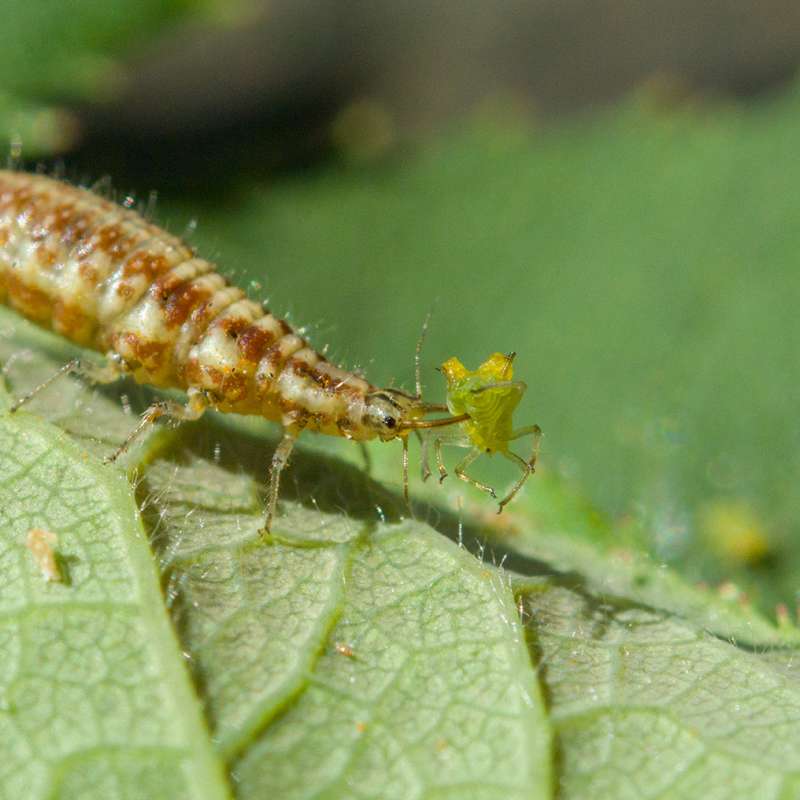
Division of Biotechnology and Plant Health
SMARTCROP
Norway has implemented EU´s Directive on sustainable use of pesticides (2009/128/EC) which promotes the use of Integrated Pest Management (IPM) and alternative approaches or techniques (IPM tools) to minimize pesticide use. There is a lack, however, of proven and practical IPM tools for farmers to use, as well as a relevant policy for a successful implementation of IPM.
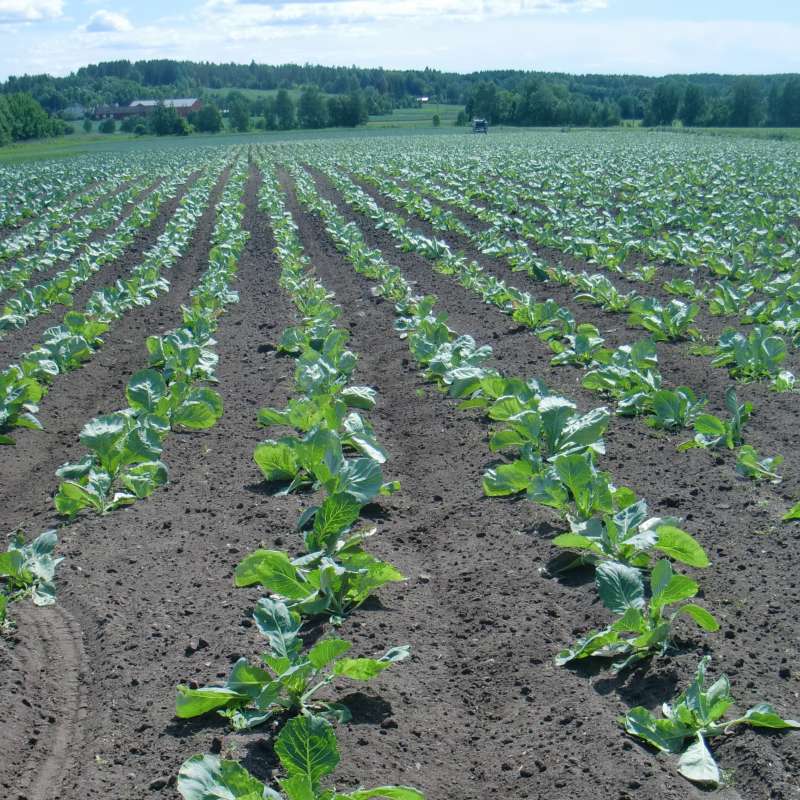
Division of Biotechnology and Plant Health
LowImpact - ChiNor solutions for Low Impact climate smart vegetable production with reduced pesticide residues in food, soil and water resources
Biochar technologies show promise as tools for climate smart and environmentally friendly agricultural production, both as tools to improve soil quality and impact greenhouse gas emission from soils and to reduce pesticide pollution to the environment and pesticide residues in food. However, there is a lack of studies integrating these concerns and designing joint solutions.
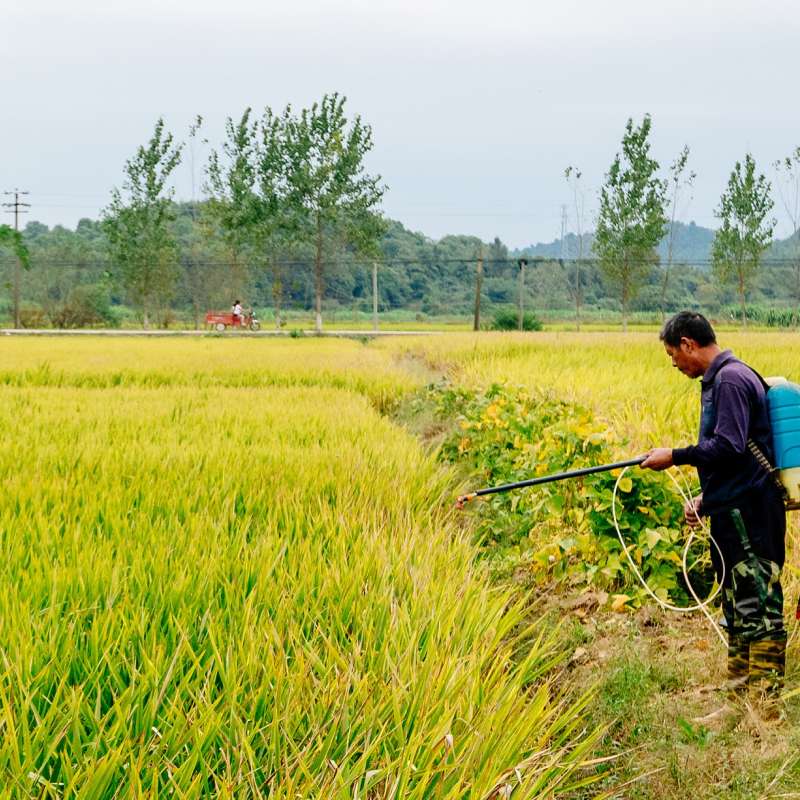
Division of Environment and Natural Resources
SINOGRAIN II
Scientists from NIBIO and CAAS are working together using innovative technologies in order to improve productivity, food safety and sustainability in Chinese agriculture.

